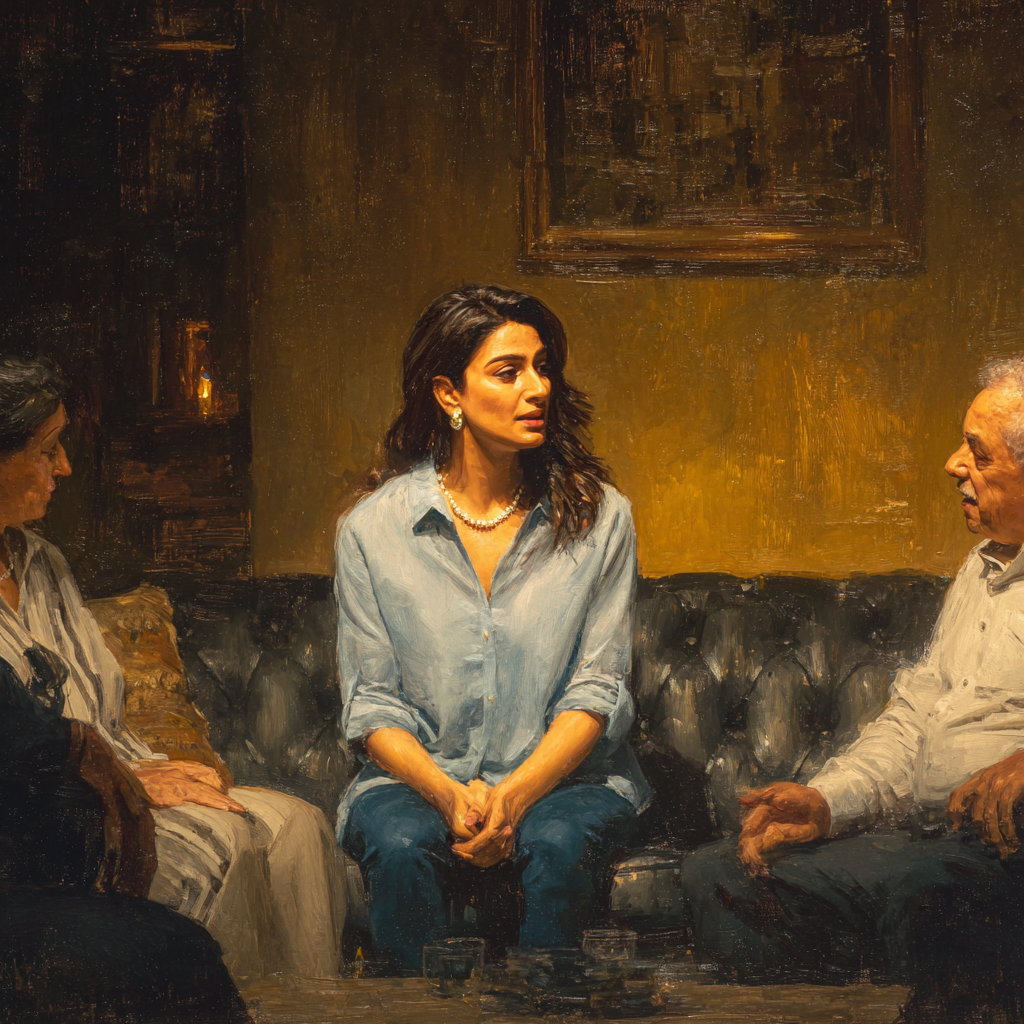
When Care Is Control: On Friendship, Family, and the Patterns We See
There are some people who simply hold space for you. They don’t try to fix you or judge you, and they don’t need you to perform some perfect version of yourself. They listen, fully and completely, and in their presence, the tightness in your chest loosens.
Today, I sat across from my friend, my Libra soul-sister, the calm in the storm, and felt my heart grow lighter. Our lives are both messy right now, filled with turbulence and unspoken griefs, but when we sit together there’s no need for disclaimers or carefully chosen words. We’ve seen each other’s patterns, the worst moments and the best, and our actions over time have proven who we really are. That trust creates a rare freedom to just be. We can’t change each other’s circumstances, but in this friendship, we don’t have to. There’s power in having a safe place to speak our truths out loud, especially when those truths are hard for others to understand.
Today we talked about the weight we both carry, specifically, the invisible weight of navigating complicated family dynamics. Both of us have challenges with our mothers-in-law, and as we shared our stories we realized something important. On the surface, our struggles look similar, but the roots are different. Her mother-in-law is boundary-less and attention-seeking, shaped by her own wounds and upbringing. She can be frustrating and invasive, but not deeply harmful. My friend can’t even bring herself to use the word hate. For her, it’s more like irritation, like a door that never fully closes, letting the wind blow through at all hours.
Mine, though, plays a different game entirely.
Her actions are wrapped in beautiful paper, carefully tied with a bow labeled love. On the outside they look like generosity or care. But underneath, there’s a pattern, one that’s hard to explain to anyone who hasn’t been trained to see it. She renovates a house five minutes away for her son, not so he has freedom, but so he’s tethered. She suggests hosting every holiday at her home because there’s “more space,” subtly implying my parents’ home isn’t good enough without ever saying it outright. She fishes for information in casual conversations, then later uses it to manipulate situations to her advantage. She frames weight-related comments as shared group goals, saying things like, “Let’s all lose 15 pounds together by December,” knowing full well how it lands. Even gifts are strategic, a way to keep us indebted and reinforce her central role in the family.
Most people don’t notice. My husband doesn’t. His family doesn’t. But I do, because I’m not emotionally attached to her the way they are. That distance gives me room to step back and see clearly. I don’t just see isolated moments, I see the system they belong to. Every word, every gesture, every seemingly kind act connects to the next, creating a web of dependency that tightens over time. What unsettles her most, I think, is that I don’t play my part in it. I don’t react. I see through the performance, but I refuse to give her the emotional feedback she needs to keep her game alive. My calm detachment throws off her rhythm, and in that quiet space, her carefully constructed dynamic begins to unravel.
That is what made my conversation with my friend so powerful today. We realized there’s a difference between someone who causes chaos out of ignorance and someone who engineers it with precision. Her mother-in-law’s behavior is clumsy, driven by unmet needs and old patterns. It’s like a toddler running through a room, knocking things over without realizing the damage.
Marcus Aurelius wrote, “In comparing sins (the way people do) Theophrastus says that the ones committed out of desire are worse than the ones committed out of anger: which is good philosophy. The angry man seems to turn his back on reason out of a kind of pain and inner convulsion. But the man motivated by desire, who is mastered by pleasure, seems somehow more self-indulgent, less manly in his sins. Theophrastus is right, and philosophically sound, to say that the sin committed out of pleasure deserves a harsher rebuke than the one committed out of pain. The angry man is more like a victim of wrongdoing, provoked by pain to anger. The other man rushes into wrongdoing on his own, moved to action by desire.”
That passage stayed with me as I listened to my friend. Her mother-in-law’s chaos feels like the “anger” Marcus describes, an instinctive reaction to her own pain and emptiness. Mine is different. Her actions are born of desire, a hunger for control and admiration, carefully plotted and self-serving. Her moves are deliberate. They are about image, influence, and power. And that difference is why my friend feels irritation while I feel something closer to hate. Not because I want to carry hatred, but because I recognize what she represents. She embodies the kind of self-absorbed, classist, manipulative people I’ve spent my whole life avoiding.
People like this thrive in the subtle. Their actions are small enough to be dismissed, yet constant enough to wear you down. It’s the insult disguised as a joke. The generosity that comes with invisible strings. The performance of care that masks a hunger for control. Most family members only see the surface, the laughter, the hosting, the gifts. They want to believe in the pretty package, because the truth is uncomfortable. But I see the machinery beneath it. I see the timing, the strategy, the weaponized incompetence. And when you see the system clearly, you can’t unsee it.
My friend can’t fix my situation, and I can’t fix hers. But that’s not the point. The point is that we sit together, two women navigating our own storms, and we get it. We hold space for each other’s pain without rushing to make it neat. We can be our worst selves and our best selves in the same conversation, knowing that our history has proven our loyalty and understanding. In a world where so many relationships feel heavy, transactional, manipulative, or conditional, our friendship is light. It’s a breath of fresh air, a reminder that not all connections drain you.
Some relationships will always feel heavy because they are built on control, not care. Others will feel light because they are built on mutual respect and freedom. The difference isn’t always obvious at first, but your body knows. When you leave an interaction, do you feel smaller, second-guessed, tangled up in invisible obligations? Or do you feel expansive, safe, and seen?
Choose the spaces that feel like exhaling. Choose the people who listen simply to listen. Choose the ones who make your heart lighter, even when nothing in your external circumstances has changed.


